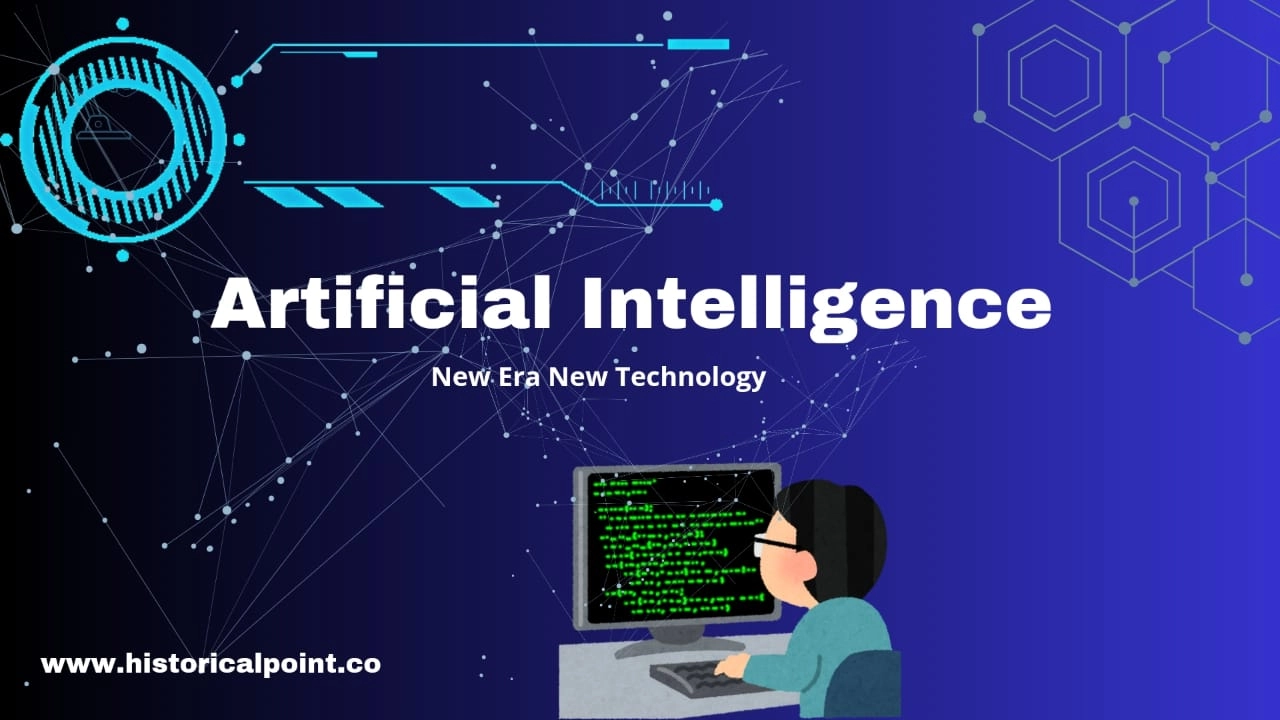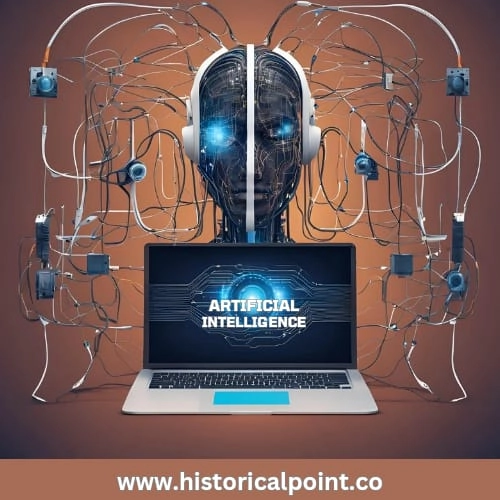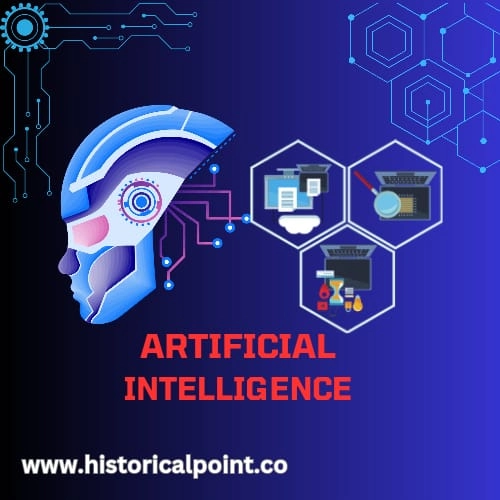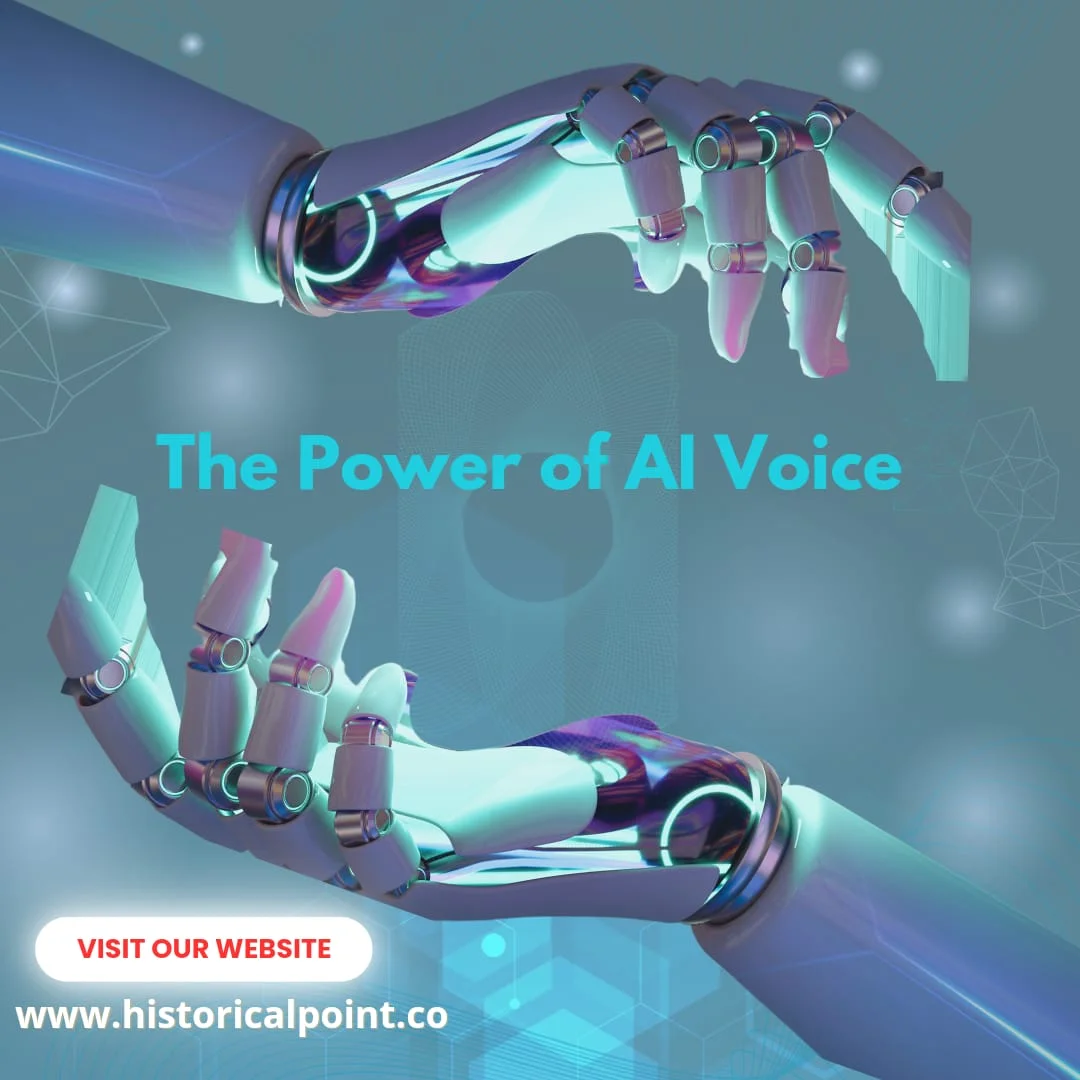
The Era of Artificial intelligence (AI) marks a significant shift in technological advancement. Details are given below. By delving into its origins and fundamental concepts, we gain a deeper understanding of how AI systems operate.
The technological components, like machine learning and neural networks, are the building blocks that propel AI capabilities. Daily life and various industries are seeing the benefits of AI through automation and smarter decision-making.
Here is the Link that can help you to watch the most interesting series:
Defining Artificial Intelligence: Origin and Concept
Artificial Intelligence (AI) has evolved from being a mere concept in science fiction to becoming a transformational force in the real world. As a result, it is now deeply integrated into various domains of technology and everyday life. Click here to read the Power of AI voice.
The Origins of AI
The origins of AI can be traced back to the mid-20th century. Notably, pioneers like Alan Turing laid the theoretical foundation by proposing that machines could simulate aspects of human intelligence.
Capabilities of AI
The notion of machines performing tasks requiring human-like intelligence encompasses a broad array of capabilities. For instance:
- Natural Language Processing: Understanding and generating human language.
- Visual Recognition: Identifying and interpreting visual information.
- Decision Making: Analyzing data to make informed choices.
- Learning: Adapting and improving from experience.
Core Concepts in Artificial Intelligence Development
Central to Artificial Intelligence development are the concepts of machine learning, neural networks, and deep learning. These serve as fundamental building blocks in creating systems that:
- Learn from Data: Adapt and improve without explicit programming.
- Adapt to New Inputs: Handle new and unseen data effectively.
- Improve Over Time: Get better with more data and experience.
Importance of Understanding Core Concepts
Therefore, understanding these core concepts is crucial in appreciating AI’s development and evolution. For example:
- Machine Learning Algorithms: Enable computers to analyze vast amounts of data, recognize complex patterns, and make predictive models. Applications range from spam email detection to advanced genomics.
- Neural Networks: Inspired by the human brain’s structure, they allow for the creation of sophisticated models that process vast amounts of information. Consequently, this leads to significant advances in image and speech recognition.
AI in Modern Technology
Today, Artificial Intelligence is an essential part of technologies that keep the modern world functioning seamlessly. Thus, from everyday applications to advanced scientific research, AI continues to push the boundaries of what is possible.

Technological Building Blocks of AI: Key Components
In today’s rapidly evolving digital landscape, the technological building blocks of Artificial Intelligence (AI) have become indispensable in driving innovation and efficiency across various domains, making breakthroughs that were once considered the stuff of science fiction.
These key components of Artificial Intelligence encompass a wide range of technologies and methodologies that collectively empower machines to perform tasks that traditionally required human intelligence, thus revolutionizing industries and everyday life in unprecedented ways.
AI Machine Learning:
One of the fundamental pillars of AI is machine learning (ML). This technology enables systems to automatically learn and improve from experience without being explicitly programmed. By leveraging algorithms that analyze and interpret complex data patterns, ML can make accurate predictions, decisions, and recommendations.
Consequently, this capability is immensely powerful in fields such as healthcare, finance, and retail, where vast amounts of data can be harnessed to derive actionable insights and enhance decision-making processes.
Natural Language Processing (NLP)
Another crucial component is natural language processing (NLP). This technology focuses on the interaction between computers and human languages, providing the ability for machines to understand, interpret, and generate human language.
As a result, NLP facilitates more intuitive and seamless communication between humans and machines. This technology underpins various applications, from chatbots and virtual assistants to sophisticated translation services, significantly impacting how we interact with technology on a daily basis.
Neural Networks and Deep Learning:
Moreover, neural networks and deep learning have dramatically advanced the capabilities of AI by mimicking the human brain’s structure and functioning, enabling machines to recognize images, process spoken language, and even generate creative content.
These technologies form the backbone of many cutting-edge AI applications, including facial recognition, autonomous vehicles, and personalized recommendations, continuously pushing the boundaries of what AI can achieve.
Tools and Frameworks
In addition to these core technologies, AI’s technological building blocks also include tools and frameworks such as TensorFlow, PyTorch, and Keras. These platforms provide developers with the necessary resources to build, train, and deploy AI models efficiently.
As a result, these tools have democratized access to AI, allowing even those with limited expertise to experiment with and contribute to the field. This democratization fosters innovation and accelerates growth in AI development.
Hardware Advancements
Furthermore, the integration of hardware advancements like Graphics Processing Units (GPUs) and Tensor Processing Units (TPUs) has further enhanced the performance and scalability of AI systems. These advancements enable real-time processing and analysis of massive datasets that were previously computationally prohibitive.
Consequently, this has been particularly transformative for applications requiring high-speed data processing, such as scientific research, financial trading, and real-time video analysis.
Graphics Processing Units & Tensor Processing Units:
The integration of hardware advancements like Graphics Processing Units (GPUs) and Tensor Processing Units (TPUs) has further enhanced the performance and scalability of AI systems, enabling real-time processing and analysis of massive datasets that were previously computationally prohibitive.
Artificial Intelligence in Action
Automation:
In the modern world, Artificial Intelligence has significantly transformed various aspects of daily life, introducing automation into routine tasks that were once considered mundane and time-consuming. From smart home devices that regulate temperature and lighting based on human presence to voice-activated assistants that manage our schedules, the integration of AI into our personal spaces has brought about an unprecedented level of convenience and efficiency.
Daily Life:
Moreover, Artificial Intelligence has seamlessly woven itself into our daily routines in ways that enhance productivity and streamline operations. For instance, in the workplace, AI-driven tools aid in project management by predicting timelines and optimizing resources to ensure projects are delivered on time and within budget. Additionally, AI-powered customer service chatbots provide instant support, increasing customer satisfaction by resolving inquiries and issues in real-time.
The implementation of AI in public transportation systems also optimizes routes and schedules, ensuring timely and efficient service for commuters. Therefore, the overarching presence of AI in everyday activities not only underscores its transformative power but also highlights its potential to continually revolutionize the way we live our lives.
The Economic Impact of Artificial Intelligence
In this era of rapid technological advancement, Artificial Intelligence (AI) is emerging as a cornerstone that redefines various sectors, resulting in profound economic impacts across numerous industries. From manufacturing to healthcare, the transformative power of AI brings stark changes in operational efficiencies, cost structures, and revenue models.
Transformations in the Finance Industry
One of the most remarkable transformations is observed in the finance industry. AI enhances fraud detection and revolutionizes risk assessments and investment decisions. Financial institutions leverage machine learning and predictive analytics to provide personalized services, creating a more inclusive financial ecosystem.
AI’s Influence on the Job Market
The economic impact of AI is also evident in the job market, with AI-created roles now outpacing traditional job categories in many sectors. As industries continue to adapt and integrate AI, the future promises a dynamic and evolving workforce where both humans and machines work in synergy to achieve greater economic prosperity.
Artificial Intelligence is not merely a technological advancement; it is a transformative force reshaping industries and economies globally. As we continue to harness its potential, the economic landscape will undoubtedly continue to evolve, promising new opportunities and challenges.
Ethical Considerations and AI Governance
The rapid advancement of AI brings forth a myriad of ethical considerations that society must address to harness its full potential while minimizing risks. As AI systems become increasingly integrated into various aspects of daily life, it is essential to consider how these technologies might affect privacy, bias, and accountability on a global scale.
Ethical Implications
Understanding the ethical implications of AI involves scrutinizing its potential to perpetuate existing inequalities and systematically incorporate biases, leading to unfair or discriminatory outcomes.
Artificial Intelligence Governance
AI governance plays a crucial role in mitigating these ethical dilemmas by establishing frameworks and guidelines for equitable and transparent AI deployment. Effective governance structures must include a collaborative approach involving policymakers, technologists, ethicists, and representatives from affected communities.
Continuous learning and adaptability in AI governance will be essential to navigate the complex ethical landscape, ensuring that AI technologies advance in a manner benefiting all humanity. Establishing international norms and regulations, alongside collaborative efforts across nations and industries, will be fundamental in achieving a balanced and ethical AI ecosystem in the years to come.
The Future of Artificial Intelligence
Artificial Intelligence (AI) has already become an indispensable aspect of modern technology. As we look toward the future, it is evident that developments within this field will continue to revolutionize our daily lives and push the boundaries of what we thought was technologically possible.

Advancements in Machine Learning and Deep Learning
One of the most prominent trends in AI is the advancement of machine learning algorithms, particularly through deep learning. These algorithms are now capable of significantly improving themselves, leading to more accurate and efficient AI systems.
Integration with Internet of Things (IoT)
Another critical development in AI is its integration with Internet of Things (IoT) devices. This results in an interconnected ecosystem of smart devices that can communicate and collaborate to provide more personalized and efficient solutions.
AI in Healthcare
The future of AI will also see widespread applications in healthcare. Predictive analytics and personalized medicine are expected to transform patient care, improving outcomes and efficiency in the healthcare system.
Ethical Considerations and AI Governance
As AI becomes increasingly sophisticated, ethical considerations and AI governance will become paramount. Ensuring that AI development aligns with societal values and does not exacerbate existing inequalities will be crucial.
Economic Impact and Job Market Transformation
As businesses continue to adopt AI-driven automation, the economic impact of AI will be profound. This will lead to the creation of new job roles while rendering others obsolete, transforming the job market significantly.
AI’s Role in Shaping the Socio-Economic Landscape
Observing these trends and predictions, it is clear that the future of AI promises a world where AI will play a pivotal role in shaping the socio-economic landscape. AI will drive forward human progress in unprecedented ways, influencing various aspects of our lives and industries.



